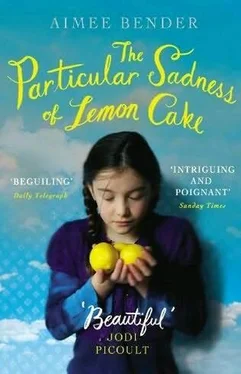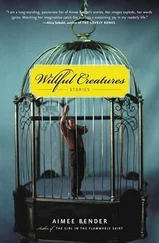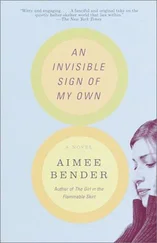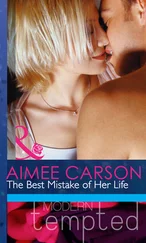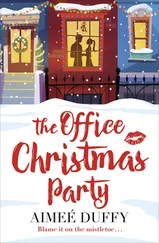Because she did not visit in person, Grandma called once a month, on Sunday afternoons, and my mother would gather us around, put the phone in the center of the kitchen table and press speaker. She was gruff, Grandma, but funny. She liked to tell about her geology rock parties, where she had invited people over to the house to dig up and label rocks from the yard and when they walked in the door she specifically requested that no one speak.
Sometimes I even put tape on their mouths, she said. If they let me. It was bliss. You understand, Joseph, correct?
Yes, said Joe.
We did drink a lot, said Grandma, a little wistfully. That you, Rose? You there?
Hi, Grandma, I said.
You’re too quiet, said Grandma. Speak up.
I rolled a vinyl place mat into a tube.
I love you, I said, through the tube.
There was a pause. Across the room, from her listening position wedged in the far corner, Mom flinched.
Love? said Grandma, through the tiny black holes.
Yes, I said.
But you don’t even know me, said Grandma. How can you love me? It should be earned. You’re too clingy. She’s too clingy, Lane, Grandma said.
Ma, said Mom, picking at the ends of her ponytail.
I’m not clingy, I said.
She is extremely clingy, said Joseph. What rocks did you find?
How are things there, Ma? Mom asked. All’s good?
No, Grandma said, all is not good. They’re taking away my driver’s license. Basalt, Joseph, she said. We found a whole lot of basalt. I’ll send you some.
Boxes of it, the following week. Dark and glassy. We repopulated the garden. When a teacher had us draw our grandparents for an assignment on ancestry, I monopolized the black crayon, and my picture had been of a thick black box with grating, lines extending outward to indicate voice.
After lunch, my teacher sent me to the nurse.
We studied nature in the afternoons on Wednesdays. In third grade, the nature section was all about bugs and I had been very excited about the upcoming lesson on fireflies, but my mood had changed drastically during the lunch hour, and as soon as we were back in the classroom, I put my head on my desk. I didn’t intend to do it; it was like someone had attached a magnet to my forehead, and then tucked another inside my notebook. That was where my head had to go.
My teacher stopped halfway through her lesson.
Close your eyes, class, she called out, and imagine you’re a firefly, flying and blinking in the darkness of the night.
Then she walked to my desk and knelt by my side and asked if I was okay. I told her I thought I was sick, and my friend Eliza, imagining next to me, popped open one eye and explained how I’d spent the entire lunch hour at the drinking fountain.
She was very, very thirsty, Eliza whispered.
Is it the heat? asked our teacher.
I don’t think so, I said.
I stood at her desk as she signed a pass with my name on it. While my classmates extended arms to make wings, I walked down empty halls, past old trophies and paintings of houses, up to the open door of the infirmary, where I stood, gripping the hall pass, waiting. I had never visited the nurse before. I was rarely sick. I never faked.
Inside, sitting at a scuffed pine desk, a woman in a yellow gingham blouse was sorting through stacks of orange and pink files. When I held up my pass, she beckoned me inside.
Hang on a sec, she said, scribbling something on a piece of paper.
I had seen this nurse before at school assemblies, usually standing with whoever had a broken bone. She was the chaperone of the broken bones. She didn’t wear white, but she had soft-looking arms, one wrist encircled by a watchband of overlapping burgundy silk. After adding comments to two files, she looked over at me, sitting in the one free chair. Another sick kid, in a long line of sick kids.
So what’s the problem, hon? she said, picking up a thermometer and shaking it out.
I held my elbows, thinking.
Do you feel hot?
No, I said.
Is your nose stuffy?
I sniffed. The room smelled faintly of cherry medicine. I looked back at her soft elbows, her dark-red ribbon watchband. I used those arms as the first point of trust.
Food tastes bad, I said then.
This was not entirely true-I’d eaten a pretty good apple in my lunch. The recess milk carton was fine. But almost everything else-the cake, the chicken dinner, the homemade brownie, the craving in the peanut-butter sandwich-had left me with varying degrees of the same scary feeling.
What kind of bad? the nurse said, glancing over my body. Do you think you’re overweight?
No, I said. Hollow, I said.
She attached a fresh piece of paper to a clipboard. You think you’re hollow?
Not me, I said, scrambling. The food. Like there’s a hole in the food.
Food has a hole in it , she wrote slowly, on the paper. I watched as she added a question mark at the end. Arc, line, space, dot.
The air in the room thinned. She took my temperature. I closed my eyes and imagined I was a firefly, flying and blinking in the darkness of the night. Normal, she said, after a minute, reading the side. So-you’re sure you don’t think you’re fat?
No, I said.
They’re getting younger and younger, she said, as if reminding me.
But I’m eating, I said.
She wrote that on her clipboard too. Says she’s eating . Good, she said. Here.
She handed over a little paper cup of water. The water was supposedly from a mountain spring, but it had resided in plastic for many weeks and so it was like drinking liquid Lucite with a whisper of a mountain somewhere inside it.
There, honey, she said.
I nodded. I still wanted, very much, to be agreeable.
Now, wasn’t that good? she said, wiping down the thermometer with an alcohol-dipped tissue.
Water is important, I said, gripping the cup. We have to drink it or we die.
Just like food, she said.
I like food, I said, louder.
Three meals a day?
Yes.
And do you ever make yourself throw up?
No.
Or are you taking any pills to make yourself go to the bathroom? she asked, eyebrows raised.
I shook my head. The vent whirred, and the air conditioner kicked up a notch. I could feel the tears beginning to collect in my throat again, but I pushed them apart, away from each other. Tears are only a threat in groups.
Well, she sighed. Then just give it a couple of days, she said. She put her clipboard to the side.
That’s it?
That’s it, she said, smiling.
No medicine?
Nah, she said. You seem fine.
But what is it? I asked.
She fixed her watch on her wrist, lifted her shoulders. I don’t know, she said. Maybe an allergy?
To food?
Or, she said, maybe an active imagination?
I picked up the hall pass. The rest of the day stretched long before me.
Just get some rest and I’ll send for you again in a couple days, said the nurse, tossing out my paper cup. Drink fluids, she said. Take it easy. Your family okay?
My family? I said. Yes, why?
Just checking, she said, settling back down in her chair. She pulled a canary-yellow knit cardigan over her shoulders. Sometimes these things go around, she said.
I spent the rest of the school day on the flat hard green carpet of the classroom library reading picture books about animals getting into fixes. A splinteringly dry afternoon. Eddie and Eliza came over with curious eyes to see if I wanted to play four square or dodgeball after school, but I told them I wasn’t feeling well. You don’t want to get this, I said, coughing a little in their faces. I dragged my feet to the bus. At the stop, Joseph looked wrung out from the day too and took his usual spot right up against the window, but this time he sat with a friend, a guy with high arched eyebrows and rangy arms and legs. They hunched over a textbook and talked and pointed the whole ride home.
Читать дальше
